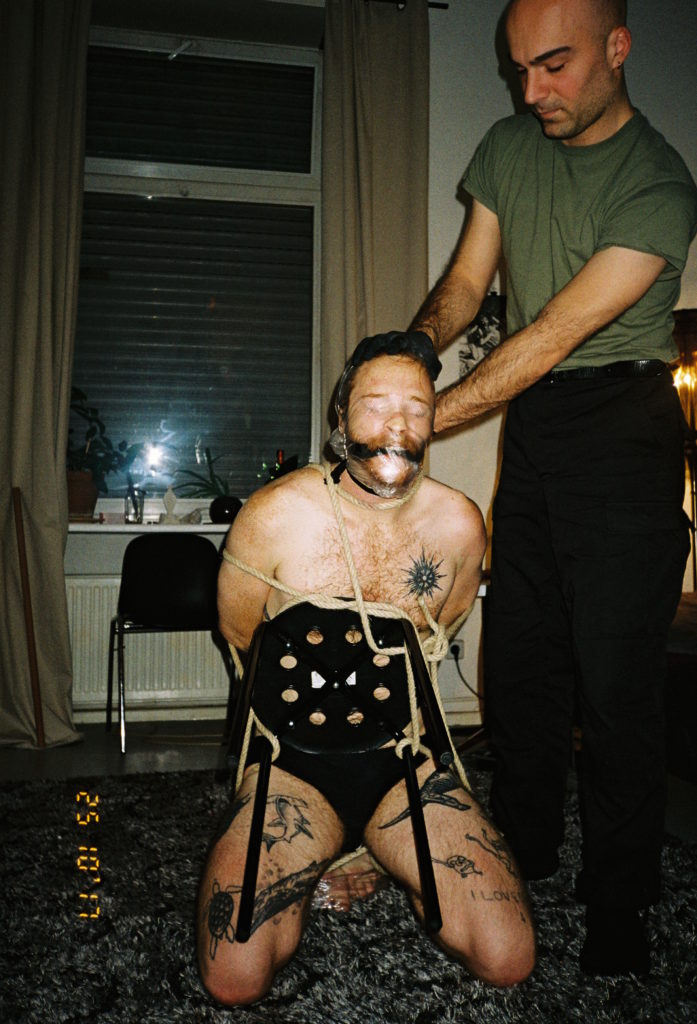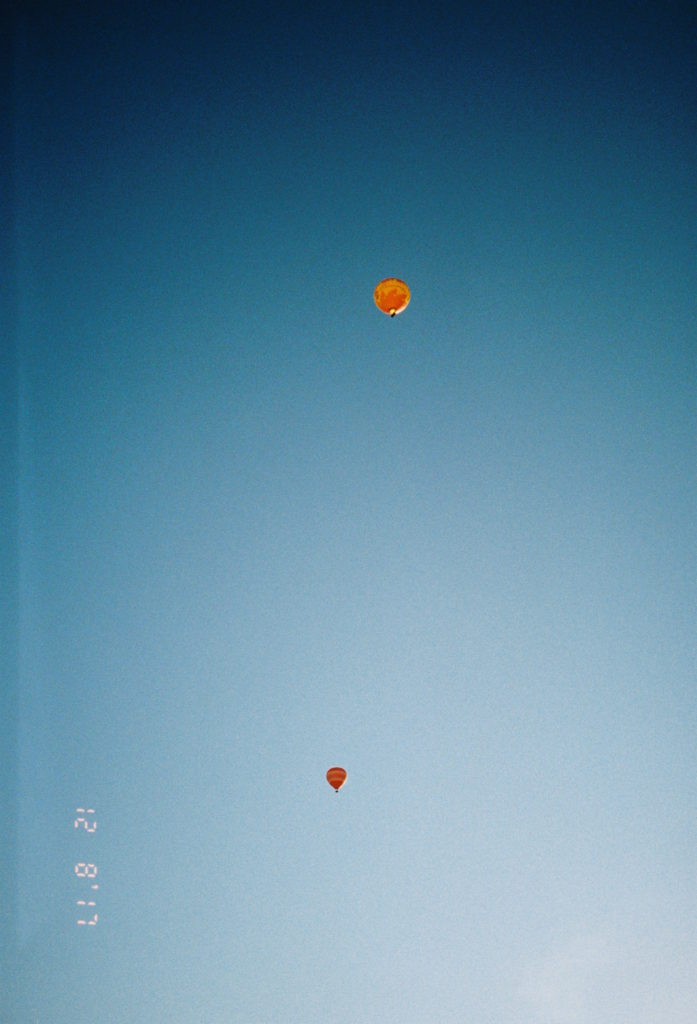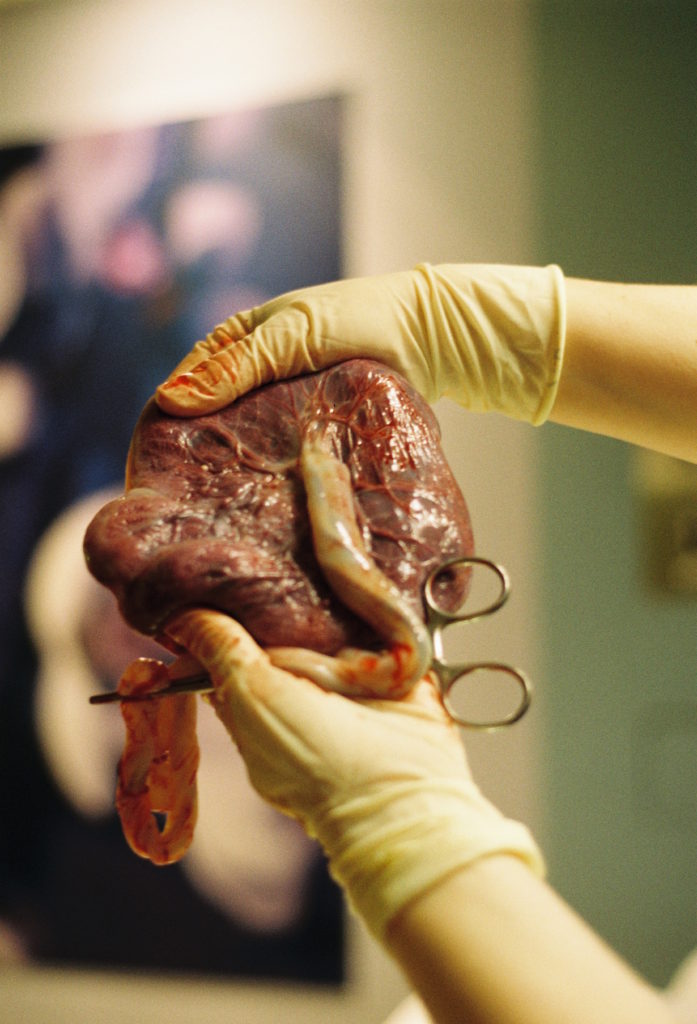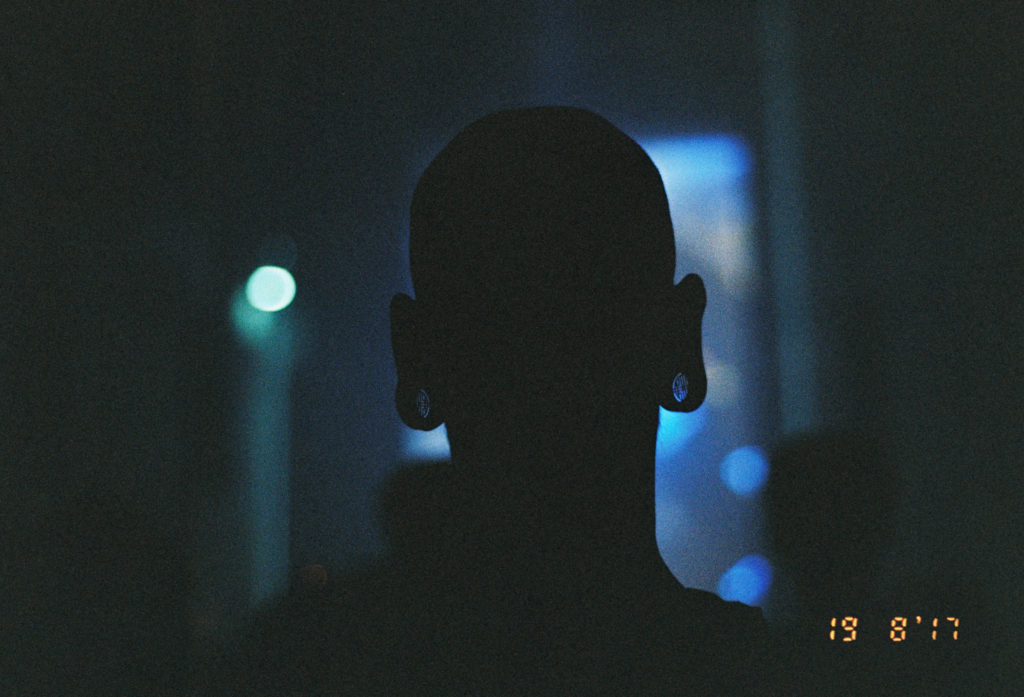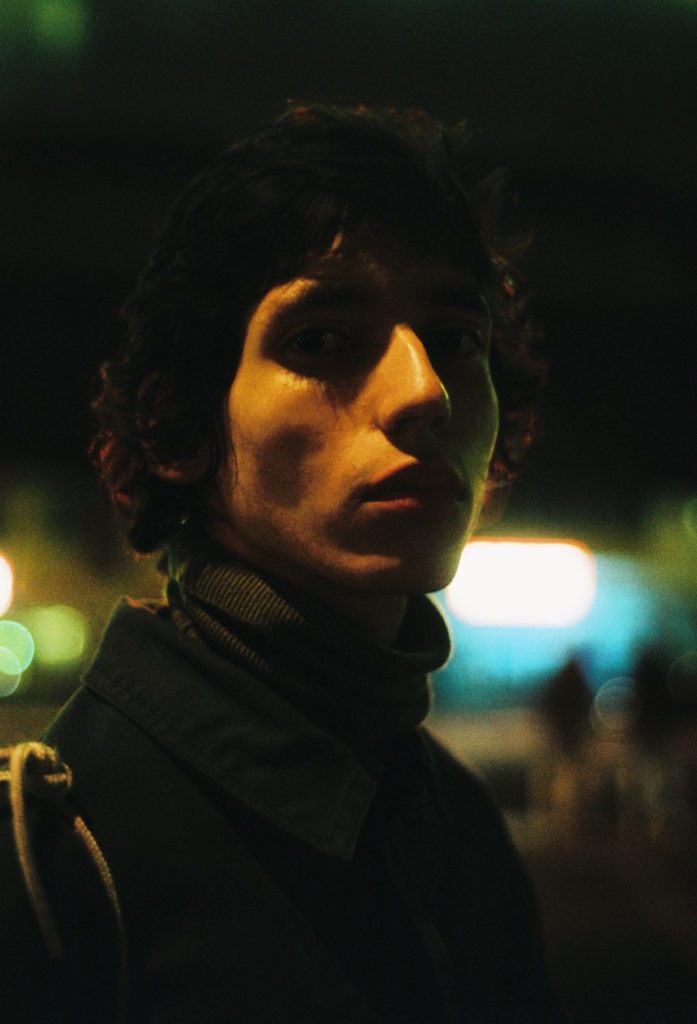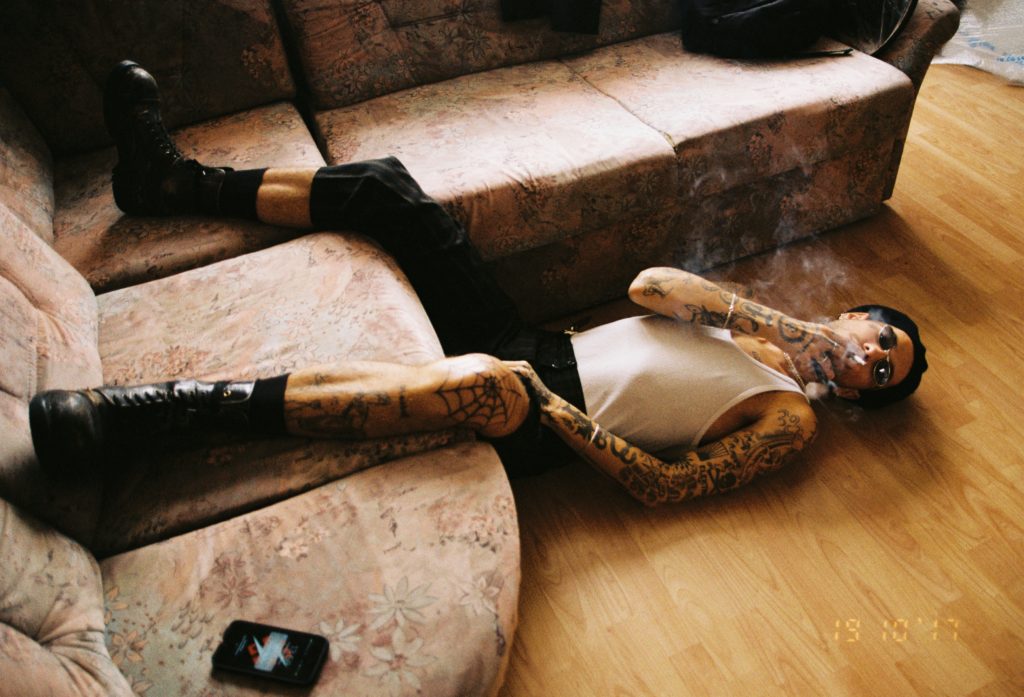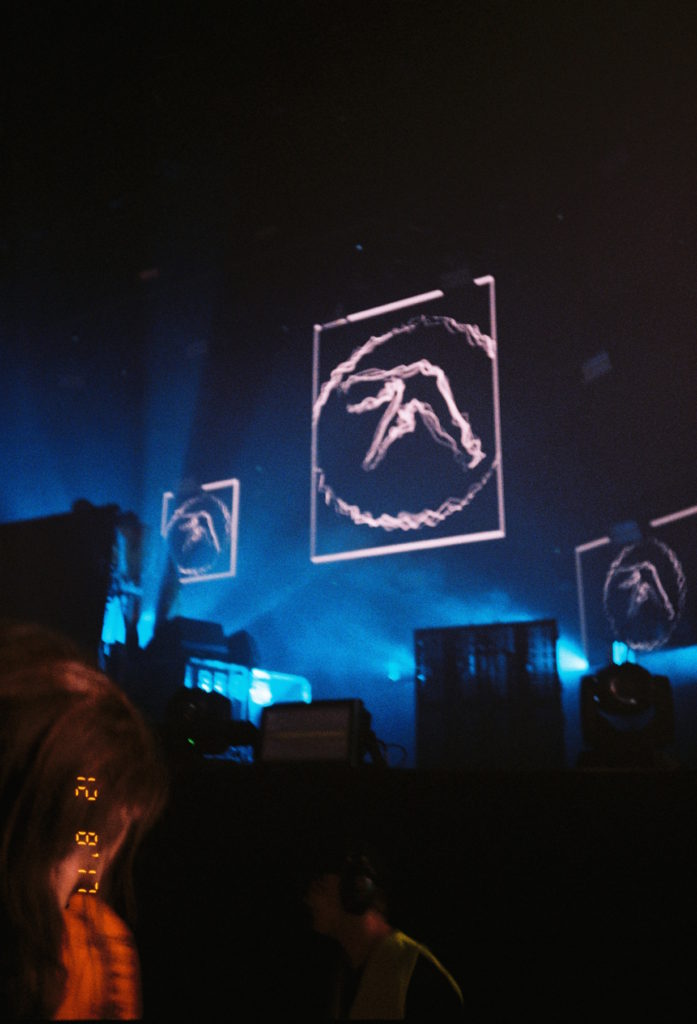Hailing from Georgia, George Nebieridze has exposed European youth culture through photographs which reveal the state of limbo that can often consume the young and irresponsible. The photographer has become well known for documenting undercover Berlin, exposing the sexual liberation and hedonist experimentation of the city. Through his lens he has created a kind of visual poetry that straddles both harsh reality and escapist fantasy. I spoke to Nebieridze on the cusp of the release of his new book, ’16.
Do you find your own photographs shocking?
I used to say, there’s no point in making any art piece if it’s not shocking. However, that’s arguable, sometimes it’s nice to see some calm and meditative work, less pretentious or flashy. I like to mix these two things though, most of the times I feel like making something very provocative or sexual, but then arrange them next to some peaceful landscapes, for instance. I bet my work generally shocks some people, especially in the country I’m from. There’s a big homophobia issue in Georgia, therefore my work often starts some awkward and tough conversations.
You grew up in Georgia, an area which was plagued by conflict with Russia in the 2000s, did this influence your creative process?
I was born in 1990 and since then Georgia has seen three wars actually: two with Russia and one civil war that took place in my hometown, Tbilisi. The particular war of 2008 you are referring to, happened when I had just started taking photos. At that time I was mostly involved in photographing young people, with their struggles, issues, ambitions and emotions. The war, inevitably affected all of us and it’s visible in some of the photos. Partly my creative process, as you say is affected by where I’m from and how messed up the country can be sometimes.
Do you prefer to take photographs in Georgia or Berlin? What makes each location different or similar?
When it comes to taking photos, it doesn’t really matter where I am. I’ll find interesting things to photograph anywhere. I prefer to live in Berlin, as I do and show and present my work in Georgia every once in a while.
Why did you decide to move to Berlin? What was it about the city that made you want to document it so concisely?
Firstly, I wanted to leave Georgia. It might be hard to believe it now, considering how trendy that place is now and how everyone from the west says cool things about it. They don’t even scratch the surface of what it actually means to grow up there. And why I chose Berlin? It was an easy choice, even though I didn’t speak German, it was the best option, I wanted to live in a big city with a decent scene and diverse people. Other big European cities don’t attract me as Berlin does, I just can’t relate to them.
Regarding what made me want to document it: once again, I’d document everything that is around me, it just happens to be Berlin at this point. Alternatively at first glance there are countless breathtaking things happening here, life seems unbelievably easy and people are friendly, sexuality is very liberated and so on, but I must say, through time I got a bit more selective and noticed many things and people were not so fascinating as they seemed at the beginning. By that I mean, after four years of photographing here my circle of concerns tighten and I filter more things in my mind. It’s important to be picky in this city and not say yes to everything.
What is your relationship to your subjects? Are they aware of your role as the photographer?
You mean people in my photos? It depends, some of them are friends, many of them are around the scene all the time and probably know who I am. Also I’ve shot a lot of commissioned portraits of artists and musicians in the last two years, but I try to avoid shooting people I can’t relate to. Even in the case when I have to take a portrait of someone for a magazine, I have a conversation with them and find things in common so they’re not strangers anymore. Sometimes I even meet them more than once in order to capture their portrait and character properly. I used to also be into street photography, for instance and still go outside to shoot sometimes. In that case you can’t avoid photographing strangers, it has different dynamics from what I’m known for, but it helps me a lot to develop as a photographer.
Many of your photographs are taken of the Berlin underground club scene, which is inextricably linked with techno and electronic music. Do you find that there is a relationship between music and your photographs?
I think it’s hard to find a person, especially an artist, who’s life or work excludes music. First of all, music plays a massive role in my existence as a person and therefore in my work. I dedicate a lot of time to sound at my exhibitions. Lately I have a luxury to ask some of the well-known recording artists to perform at my openings. First years I was more into grungy and heavy rock ‘n’ roll tracks on my shows, I would play My Bloody Valentine or PJ Harvey. Lately it got mixed with Techno, Noise and Hard Core. I met many talented people in that scene and enjoy working with them. Recently I collaborated with Underground Resistance, Berlin Atonal Festival and Northern Electronics to name a few. I’m currently working on couple of album artworks and shoot a lot of portraits of various musicians.
Do you ever feel like Berlin plays into its own cliché?
Oh yes, in so many ways. Sometimes it gets ridiculous. It has it’s pros and cons though.
Your subjects are often set against sparse, grey backgrounds. They are gritty, raw and sometimes violent – do you consider them pessimistic?
I can’t really think of any sparse, grey backgrounds in my photos, mostly my intentions are to make my work as colorful as possible. Yes, they are gritty and raw, but not pessimistic. I appreciate realness in photography and sometimes reality seems a bit harsh or violent, but my nature is more romantic and I’m ultimately passionate towards beauty.
Your photographs evoke a sense of vacancy and the oblivion of youth, is this a narrative that you purposefully intertwine in amongst your photos?
Without a doubt, it’s all my personal reality, my life. I almost never stage my photographs or scenes, things just happen to me. So at this point my life and surroundings turn out to to be this way, I’m just a spectator, recording all of it.
How do you approach composition? Do you ever find it frustrating that while your subjects appear so unrestricted and free, their images are confined by a rectangular frame?
I take composition and aesthetic accuracy very seriously. I’m a fine art photographer, so my work should carry artistic values. On some occasions I discover that I have a very precious photo, might be of a person or a moment, but often I get disturbed if they don’t qualify artistically or something is not right in composition. I have a degree in art history and have been exploring the historical development and stylistic contexts of numerous iconic art pieces that motivate my photography.
Do you ever tire from the lifestyle in Berlin? Would you like to document another country or place?
I used to, now I can’t really afford to do so. I’m a father of two and barely get any free time to relax actually, but every time I manage to go out I value every minute way more nowadays. This city still has so much to give, I’m hugely grateful to this place and it’s tenants for the experience I gained and things I learned. I can see myself in a different city sometime in the future. I’m always excited to move around and travel, therefore I don’t see any signs of stopping this hunger I have towards shooting what happens around me, no matter where.
You can pre-order Nebieridze’s highly anticipated second book ’16 here.



